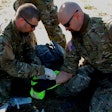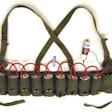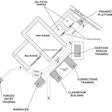The upsets in the recent mid-term elections are a clear indication of the growing dissatisfaction throughout much of today's America. The effects of the lingering recession are taking a heavy toll in both the private and public sectors.
As a result of dramatically shrinking tax revenues, the public sector is now being forced to make unprecedented cuts across the board. Many LE agencies are cutting back to basic police services. Police (and even fire) layoffs are becoming more frequent. Several cities have gone into bankruptcy. Others have even been forced to disband their entire police and fire departments.
What does all this mean for SWAT? I posed this question recently to John Gnagey, executive director of the National Tactical Officers Association (NTOA). He told me that in his travels, he's hearing about increasing numbers of LE agencies merging their SWAT teams, personnel and resources into multi-agency, regional teams.
This is happeneing not only with smaller agencies, but larger ones with established, experienced teams. The economy isn't the only factor in the merger trend. NTOA began seeing this trend after NTOA's new SWAT standards were announced, Gnagey told me.
Such SWAT mergers may ultimately be blessings in disguise, especially for LE agencies without adequate resources to meet NTOA standards or properly staff, equip, and train individual teams. The answer for these departments may be multi-agency or regional teams.
I recently met with the chief of a medium-size California city police department. His city and department have been hard hit by the economy. In the last election, a tax levy for police was defeated by the voters. This chief, who has already had to make drastic cuts in services in his understaffed force, now faces the very real potential of layoffs.
When asked, the chief said SWAT would not be touched. It's a good team, and busy enough to justify continued existence. Although that "justification" was becoming increasingly difficult.
This pro-active, pro-SWAT chief has also been considering the possibility of forming a multi-agency team with neighboring police departments, whose teams already assist each other on SWAT callouts. Such a multi-agency team would greatly enhance the region's SWAT capabilities, along with preserving the teams themselves.
Small and medium-size departments aren't alone when it comes to the effects of the economy. One large Midwest city with a high crime rate has been especially hard hit by the economy, along with a shrinking population and tax base. The combination has crunched the police department, which has been forced to reduce the number of officers through attrition and layoffs.
This city's full-time SWAT unit averages hundreds of calls a year, making it one of the busiest SWAT teams anywhere. Yet despite the steady increase in call volume, the SWAT unit has lost a full 43 percent of its personnel in the past 15 years compared with the 11 percent the department has lost.
The pro-SWAT chief offers a different perspective, one echoed by the California chief. That chiefs have to justify the need, existence, and staffing of every facet within their departments.
This is where SWAT comes into the picture. Those in SWAT are in the best position to know their departments and jurisdictions better than anyone.
I'm a strong advocate of SWAT being capable and versatile enough to handle a wide variety of assignments. SWAT teams need to stay active as their agencies tactical go-to specialists. Team commanders and leaders always need to assess capabilities, and display a ready willingness to volunteer to handle any special assignments for their agencies.
I'm an equally strong advocate of SWAT being able to switch gears (tactics, equipment, etc.) to accomplish whatever missions they're tasked with handling.
While SWAT has repeatedly proven its lifesaving worth since its inception more than 40 years ago, SWAT can never rest on its laurels. People tend to have short memories and fall into the mindset, "What have you done for me lately?"
Smart SWAT teams anticipate that question, and have a ready answer before the question is even asked.




















